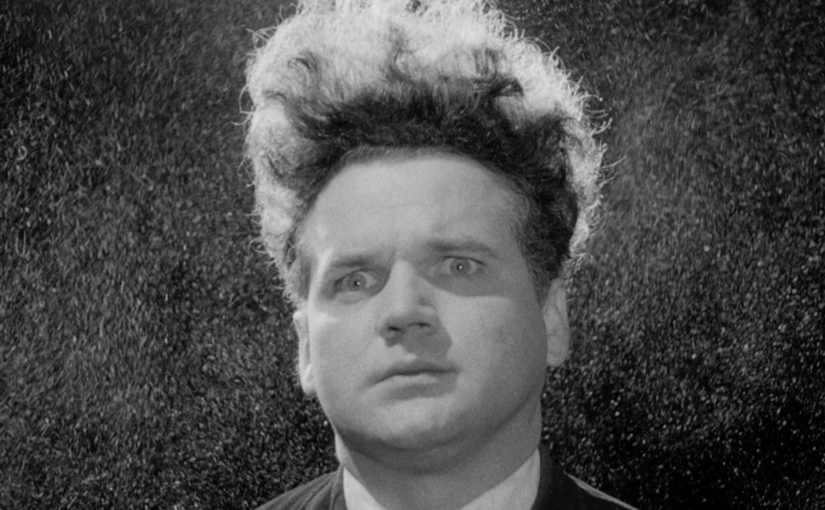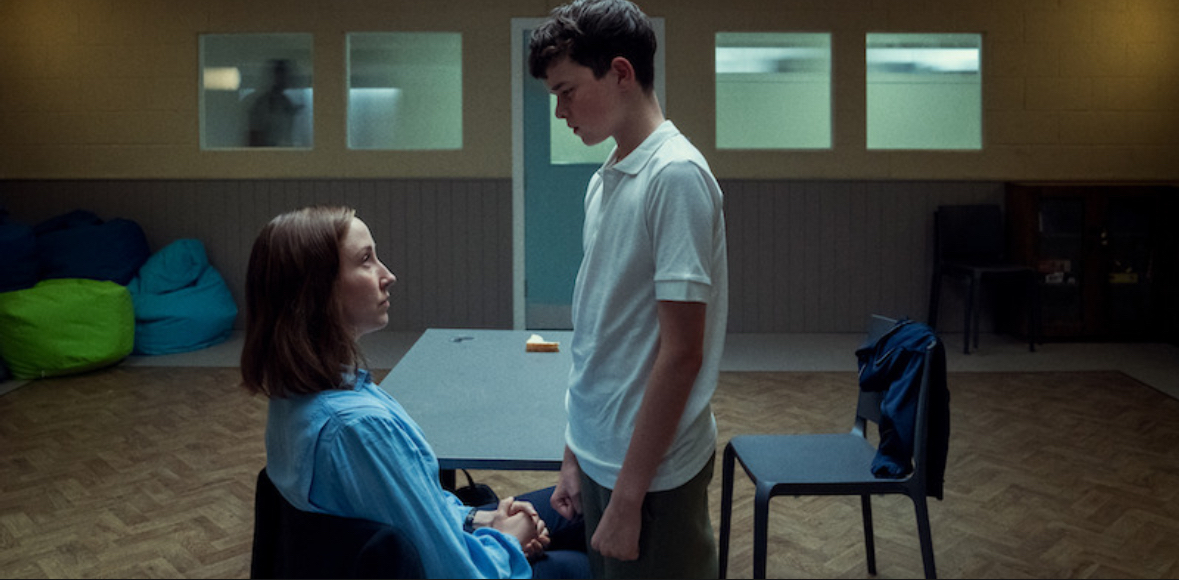After being sucked into the world of “Twin Peaks” several months ago, I admittedly became slightly obsessed with the work of David Lynch. For those who are unfamiliar, David Lynch was a visionary director, writer, artist, and composer (and many other things that seem too long to list), who unfortunately passed away on Jan. 15. Lynch created some of the most captivating yet bizarre films of the 20th and 21st centuries, each one challenging the audience in a different way every time. Standing out from this filmography, however, is Lynch’s first feature-length film, oddly titled “Eraserhead” (the name is arguably less odd than the context around it). Released in 1977, “Eraserhead” continues to horrify and mesmerize audiences with its cinematography, atmosphere, and incredibly strange characters, all of which lend to it being arguably one of the most challenging films of the 20th century, if not of all time.
Lynch focuses heavily on the world surrounding the characters, rather than the characters and their traits themselves. The world of “Eraserhead” is a gloomy, grimy, and dark industrial cityscape, where only wilted flowers and towering factory plants can be seen. Shot in black-and-white, this stylistic choice encapsulates the sheer depression and dreariness within the world Henry Spencer occupies himself in, and this set slowly leads the audience throughout the narrative.
While on vacation from his factory job, a printer named Henry reconnects with his girlfriend, Mary, who claims she gave birth to his “baby” (the quotation marks may seem odd, but given the visuals in the film, they are appropriate). After marrying, Henry and Mary begin taking care of their “baby” together in Henry’s apartment, only for some strange occurrences to ensue. The “baby” wails relentlessly every night, causing Mary to become hysterical and decide to go to her parent’s house, leaving Henry alone to take care of the “baby.” Some of the things that occur after this are best left out of this article and solely in the hands of the film, since not only would I not want to spoil the rest of the film, but the events are frankly so bizarre I’m not quite sure I could put them into words accurately.
I watched the film a second time, without having my eyes wide open and my jaw dropped in shock after almost every sequence. Knowing what to expect allowed me to watch the film with a more analytical lens, focusing more on the imagery and the stylistic choices that influenced the cinematography, rather than taking everything I saw on-screen at face value. Many viewers describe the movie as a showcase of a nightmare, but I think that Lynch is trying to highlight reality, albeit in an extremely dream-like way.
This movie is about the dullness of everyday life, the anxieties of parenthood, and the hope for a light at the end of the tunnel. At a certain point in the film, a girl is seen singing and dancing to a song whose primary lyric states “In Heaven, everything is fine.” Henry wants everything to be fine. He wants to escape the dullness of his work in a factory by going on an extended vacation. He wants to escape the monotony of his personal life by being in a relationship with Mary. But he also wants to escape from being a parent. He sees his “baby” (and the audience may see it as well) as a leech or a virus. A virus that consumes him with more dullness than his work ever did. A virus that consumes everything around him, including those he loves. It consumes him to the point where it becomes him, only for what’s truly left of him to be repurposed for the needs of a factory (I leave this description extremely vague for good reason).
This theme may seem to be a particularly harsh view of children, but I’m not sure that it is Lynch’s honest view. I think that he uses his own experiences with parenthood and anxiety and translates them into a harsher and more esoteric theme, coupled with the harshness of the world he creates in the film.
Yet “Eraserhead” has a happy ending (sort of). Henry reaches that bright light at the end of the tunnel quite literally in the last scene of the film. Everything does turn out to be fine, despite the despair Henry faces beforehand. But he only reaches that light after he rids himself of — well, I think it’s best if I leave that to be revealed during your viewing of the film. It’s a wonderful movie, but you will either love it or hate it. Everyone who has discussed this movie to any degree always has a strong opinion about it, and I think it is nearly impossible to not have one. Whether or not you enjoy the film, it’s undeniable that “Eraserhead” is a thought-provoking film and a masterclass in cinematography that utilizes symbolism and shocking visuals to captivate the audience into entering its world. It’s certainly not everyone’s cup of tea, but it’s worth watching regardless. David Lynch’s passing was a call for many to either rewatch or experience his work for the first time, and I urge you to do the same thing.





